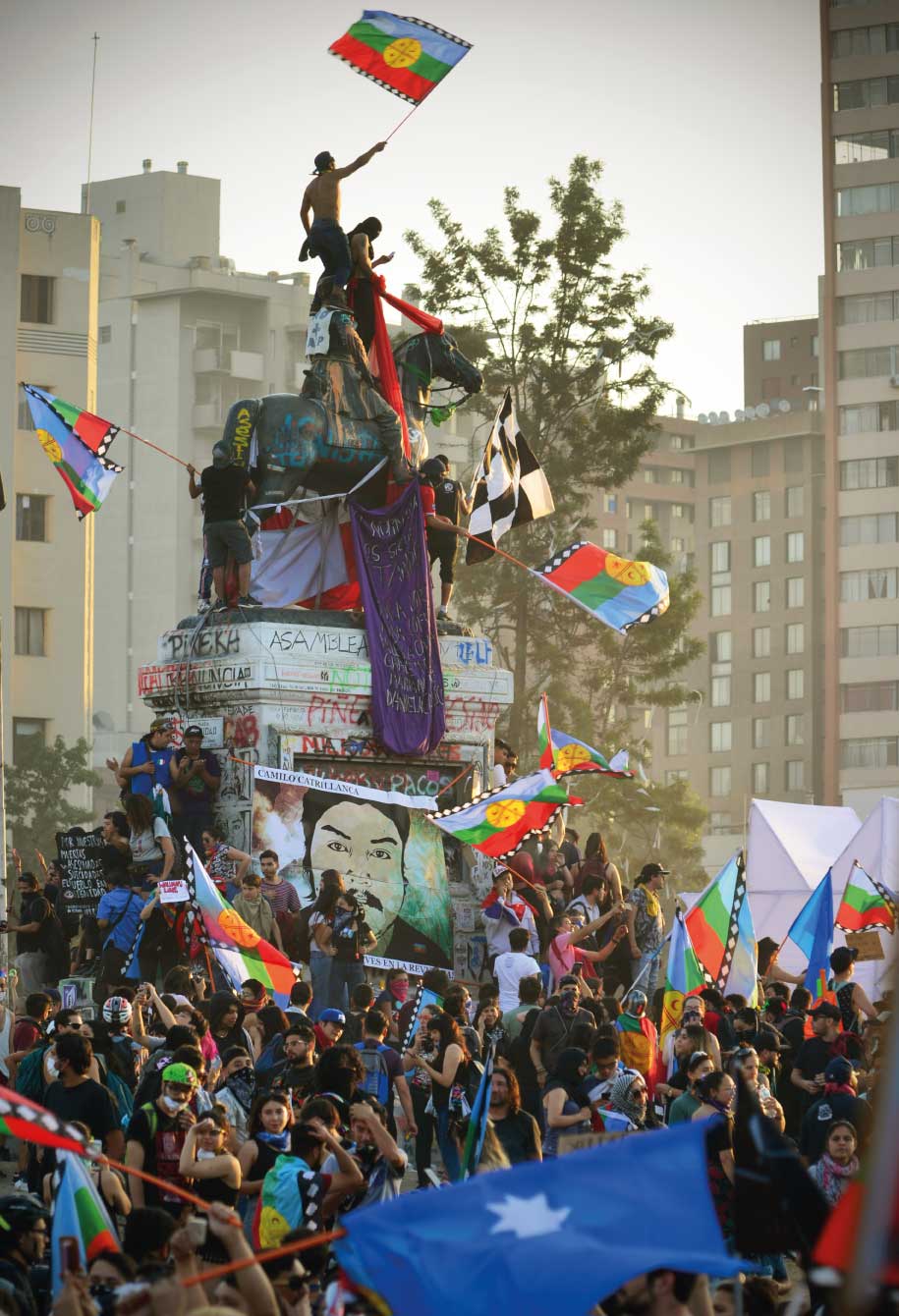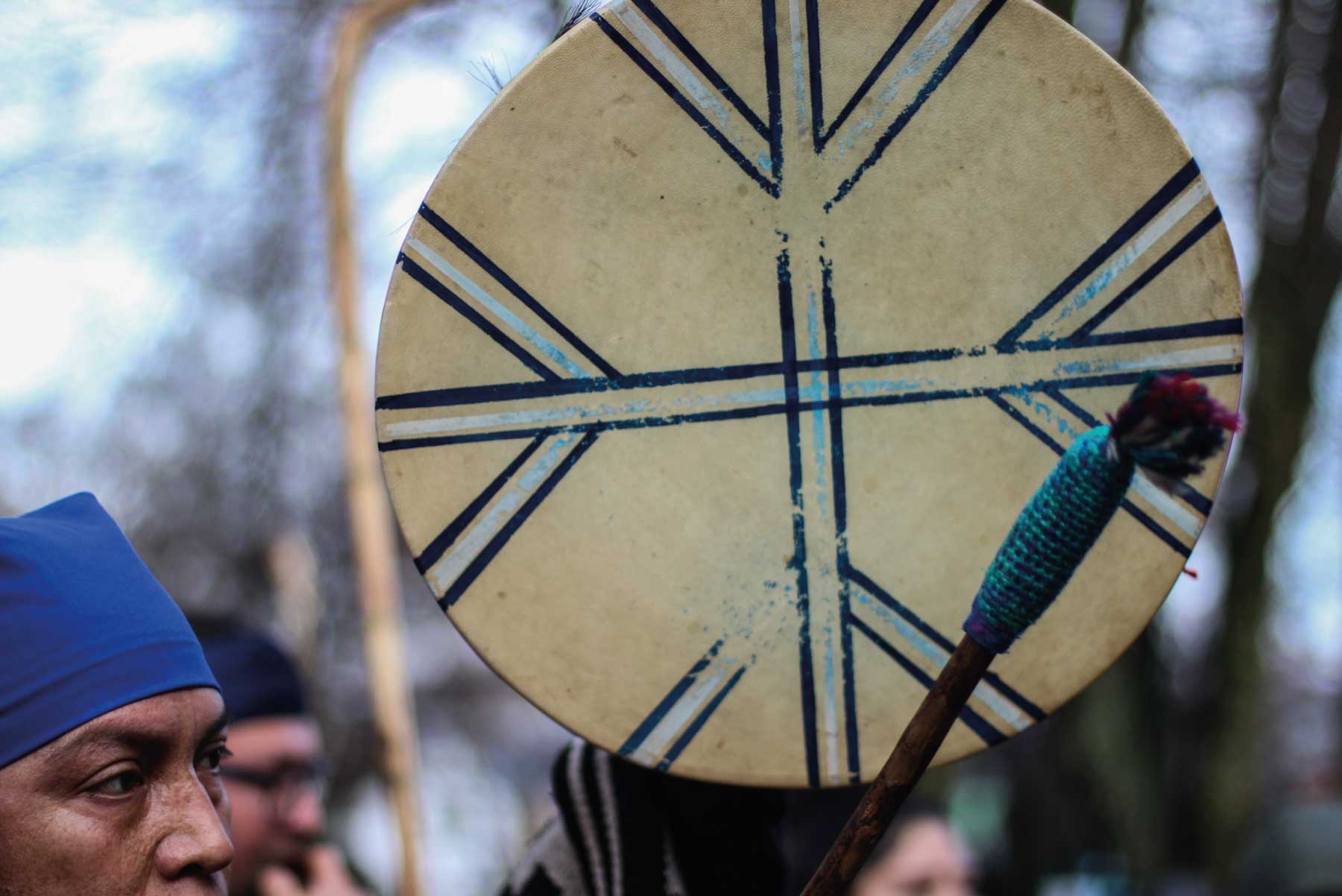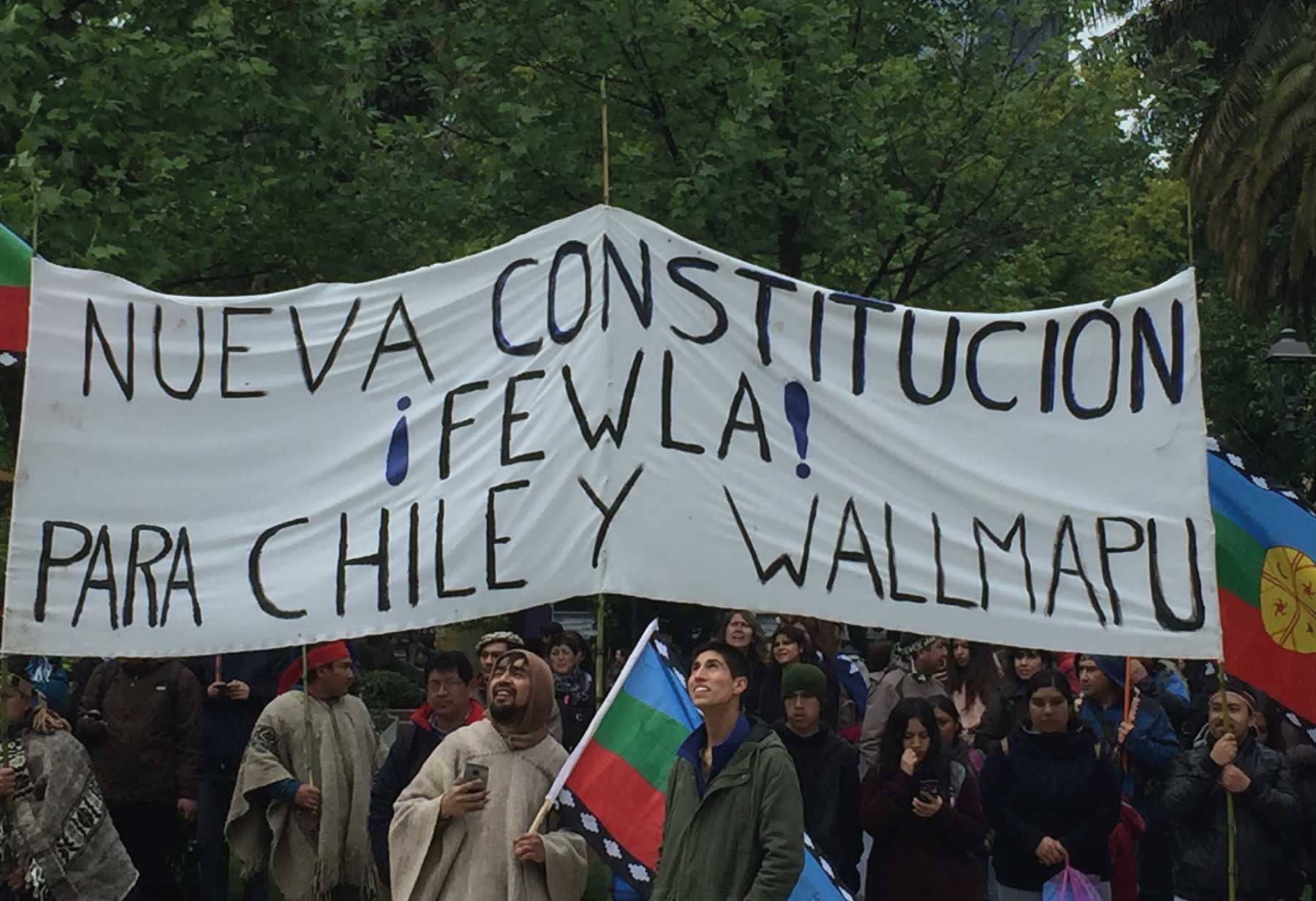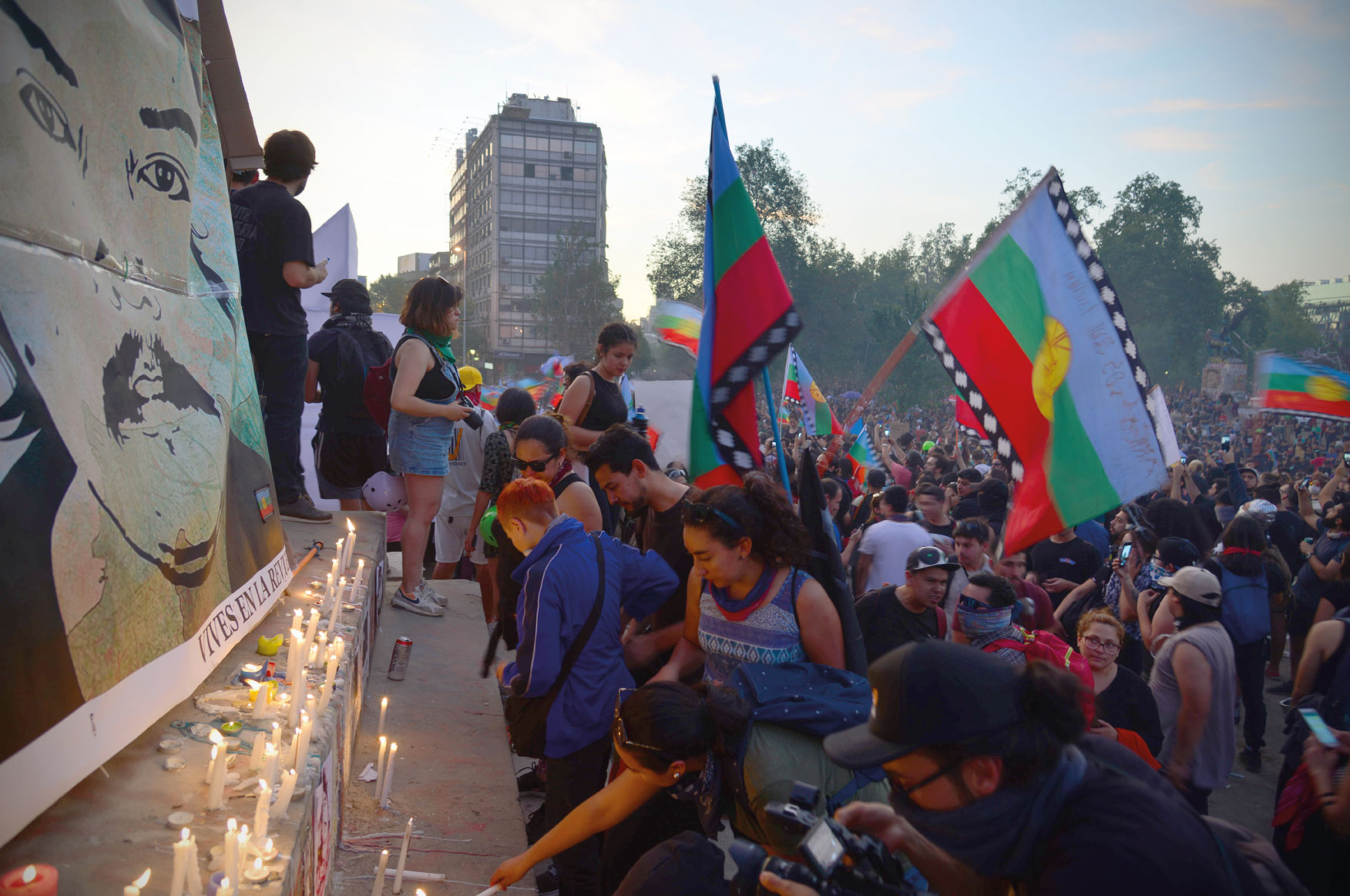The results of the plebiscite held on October 25, 2020 were unequivocal. Four out of five citizens pronounced themselves in favor of a new political constitution. The same proportion voted for the constitution to be written by officials elected for this purpose through a Constitutional Convention.
The results of the plebiscite held on October 25, 2020 were unequivocal. Four out of five citizens pronounced themselves in favor of a new political constitution. The same proportion voted for the constitution to be written by officials elected for this purpose through a Constitutional Convention. This result represents an essential step towards putting an end to the 1980 Political Constitution enacted during Augusto Pinochet’s dictatorship, which, despite numerous reforms, has continued to limit the exercise of human rights and a full-fledged democracy, generating exclusions and inequalities of every kind. In this context, the people of Chile discuss the inclusion of 23 additional seats in the constitutional convention for indigenous representatives, as well as one seat for an Afro-descendant representative.
One of the most damaging aspects of the dictatorship’s Constitution was the exclusion of indigenous peoples, considering that 2,158,792 people, a number that amounts to 12.8% of Chile’s population, identify themselves as indigenous. Even though this proportion makes Chile the country with the largest indigenous population, after Andean and Mesoamerican countries, the Constitution denies the existence and rights of indigenous peoples, subsuming them under the monist category of the Chilean “nation”. Since 1990, there have been several unsuccessful projects to attain their legal recognition.
The rights of indigenous peoples are also restricted by constitutional rulings that allow the appropriation of their natural resources, such as water and subsoil minerals. Additionally, the current legal framework has limited the application of international standards concerning indigenous rights. Because of this, even after the Chilean State ratified the International Labour Organization’s Convention 169 and signed the United Nation’s Declaration on the Rights of Indigenous Peoples, both left-leaning and right-leaning administrations have ignored the guidelines set by these documents in topics as relevant as indigenous land acknowledgement and the right to free, prior and informed consent and consultation.
“Although indigenous peoples were not a determining factor in the social outbreak of 2019, Mapuche flags were ubiquitous during the protests.”
The restrictions imposed to the exercise of these rights, amidst the proliferation of mining, logging, hydroelectric and aquaculture projects on indigenous territories, have spawned socio-environmental conflicts. Indigenous protests have been harshly repressed and persecuted, a circumstance that has been condemned by international human rights organizations. On top of that, there is political exclusion. Indigenous representation in Congress, in contrast to demographics, merely reaches 2.5% of its members. Lastly, there is economic exclusion, manifested in high poverty rates: 7 of Chile’s 10 poorest communes are located in the Araucanía Region.
Although indigenous peoples were not a determining factor in the social outbreak of 2019, their flags —specially the Mapuche wenufloye—were ubiquitous in the massive protests led by students, excluded workers and women, turning into a symbol of civil resistance against the dictatorship’s institutionality and the authoritarian, exclusionary regime.

The wenufoye became a symbol of resistance against an oppressive and exclusive system. Foto: Andrés Cruz Millares.
The Constituent Process and indigenous peoples’ demands
The social outbreak gave rise to the “Agreement for Social Peace and the New Constitution”, signed on November 15, 2019 by representatives of the different political parties. It established the procedure and schedule for a constituent process subject to a plebiscite.
Despite being postponed by the pandemic, the process has strengthened activism and rendered indigenous claims visible. These claims include procedural demands —the right to proportional representation in the elaboration of the new constitution—, as well as substantive demands with regards to the recognition of their collective rights and the constitution of a plurinational State.
These demands are not new, they have been developed for years. During the last decade, the Mapuche political party, Wallmapuchen; the Lafkenche Territorial Identity Mapuche movement; the Association of Municipalities with Mapuche Mayors (AMCAM, as per its acronym in Spanish), which includes nine municipalities in the southern central region of the country; and the Council of Atacameño Peoples have been active promoters of a Constituent Assembly for the elaboration of a new constitution.
The demands for the recognition of a plurinational State and collective rights were emphatically expressed during the participative constituent process and the indigenous consultation, held in 2016 and 2017 under Michelle Bachelet’s administration. In addition to plurinationality, the demands included the acknowledgement of indigenous territories, indigenous rights over natural resources and the right to self-determination. There was also a call for granting constitutional status to the International Labour Organization’s Convention 169 and the United Nation’s Declaration on the Rights of Indigenous Peoples.
“Indigenous demands have been influenced by the reforms conducted in Latin American States, in which indigenous peoples played leading roles.”
These demands have clearly been influenced by the reforms conducted in Latin American States during the last decades, in which indigenous peoples have played leading roles. The constituent processes the resulted in the political constitutions of Colombia in 1991, Ecuador in 2009 and Bolivia in 2009 were particularly relevant. It must be said that there is not a monolithic stance among Chilean indigenous peoples with regards to the ongoing constituent process and indigenous participation in general.
The gaps in the implementation of indigenous rights in Latin American constitutions have led some Mapuche organizations to express their skepticism towards indigenous participation in the ongoing constituent process. Aucan Huilcaman, werken of the Council of All Lands, has claimed that: “The declarations of plurinationality formulated in the constitutions of States such as Ecuador and Bolivia have not solved anything with regards to indigenous peoples, nor have they managed to guarantee plurinational coexistence”. He also argues that free determination is an internationally recognized right of indigenous peoples, thus, the Mapuche people should promote a process for the exercise of this right through the formation of a Mapuche Constituent Assembly.
Other organizations, such as the Arauco Malleco Coordinating Committee (CAM, as per its acronym in Spanish), have also casted doubts over the participation of Mapuche organizations in the ongoing constituent process, describing it as a colonial process that intends to put a stop to the fight for Mapuche autonomy. In contrast, the CAM claims that autonomy is achieved by means of territorial fighting, vindicating the use of violent actions, mainly against logging companies that operate in Wallmapu.

In the Senate, the three-fifths of the votes necessary for its approval were not obtained. The inclusion of 23 additional indigenous constituents must be analyzed by a mixed commission of senators and deputies. Photo: Julio Parra.
Indigenous seats
An increasing number of organizations representing all of Chile’s indigenous peoples, including Mapuche organizations, have promoted a constitutional reform, looking to obtain seats specifically designated for indigenous representatives and thus ensuring their participation in the Constitutional Convention that will be elected in April 2021. Last March, legislators of different parties at the Chamber of Deputies presented a project for constitutional reform, to reserve seats for autochthonous peoples in the arrangement of the upcoming constituent assembly.
To reserve seats for indigenous representatives, some specifications have been suggested, such as making the participation proportional to the indigenous population recorded by the 2017 census (25 seats in addition to the 155 seats of the Constitutional Convention approved by the plebiscite) and using self-identification as the basis of the indigenous electoral roll. Other specifications include voting for the special seats in a special indigenous peoples’ district with geographical basis; the proportional representation of each indigenous people, according to their respective population; the inclusion of all the legally recognized peoples (Law 19.235); the inclusion of the Afro-descendant tribal people (recognized in 2019, through Law 21.151); candidacies supported by legal or traditional indigenous organizations; indigenous representation unaffiliated with political parties; and gender parity.
This constitutional reform project was approved early this year by the Chamber of Deputies, and was later sent to the Senate Committee on Constitutional, Legislative and Justice Affairs. Although this committee approved the inclusion of 23 special seats for indigenous peoples back in October, the project did not reach the three fifths majority required for its approval during the full Senate vote in November 18. Because of this, the project will now be analyzed by a mixed committee composed of members from both houses of Congress. The approval of this reform remains uncertain, as the current members of the National Congress and the parties in government have announced that they are only willing to support 15 special seats, included among the 155 seats of the Constitutional Convention. Furthermore, it remains to be seen if an additional seat will be created for representation of the Afro-descendant tribal people.
“Constitutions are political and social instruments that allow to address the existing problems of a society and channel them into institutional pathways.”
The government’s refusal to approve a reform that enables the proportional representation of indigenous peoples in the Constituent Assembly has been harshly condemned by a transversal alliance of organizations that represent all the indigenous peoples of Chile. On October 12, more than 40 indigenous organizations presented an open letter in response to the negligible advancement with regards to reserved seats and the participation of autochthonous peoples in the National Congress: “We believe it is time for the Chilean State to rise to the occasion and attend to the urgent demands made by the majority of both the Chilean and Mapuche people, to settle a historic debt with the autochthonous peoples through improved democratic mechanisms of participation.” For these organizations, the government’s delay evidences “a lack of will” to solve this matter. They expressed “uncertainty” over the way in which they would participate in this historic process. The letter concluded that the vagueness around this matter generated an “atmosphere of distrust, disbelief and legal uncertainty”.
The inclusion of indigenous peoples in the constituent process is not only grounded in the right to equality and non-discrimination, the right to political participation and the right to self-determination of indigenous peoples —all of which are included in the international human rights treaties that Chile has ratified—, but it also has a profound political basis. Apart from being legal instruments, constitutions are political and social instruments that allow to address the existing problems of a society and channel them into institutional pathways. The willingness to obey it, and thus its effectiveness, will be determined by the inclusion of all the sectors and minorities that make up a State, including indigenous peoples.

The protests succeeded in establishing a constituent process and are now demanding special indigenous seats.
A historic opportunity
Therefore, the new political Constitution must be understood as a unique opportunity to address a historic conflict, caused by the monoethnic conception of the State, which, together with the political and economic exclusion of indigenous peoples and the imposition of extractivism in their territories, has been exacerbated for the last years. The acceleration of the conflict is a consequence of two trends: on the one hand, repressive policies against indigenous social protests, and, on the other, the increasingly confrontational response of communities and organizations, specially Mapuche ones, that fight back against the State’s exclusionary model.
“The new political Constitution must be understood as a unique opportunity to address a historic conflict.”
If the constituent process does not consider indigenous peoples and the people of Chile as main actors in the Constitutional Convention to be elected in April, it is very probable that this historic conflict will take a drastic turn, as it has happened in other contexts, letting confrontation prevail over dialogue and understanding between peoples that share the same territory. Legislators of the conservative parties related to the current administration, who up to this point have been reluctant to attend to the demand of indigenous peoples, must be up to the task in this historic moment, and must understand the opportunity that proportional indigenous representation entails for the establishment of fairer and more inclusive forms of interethnic coexistence.

